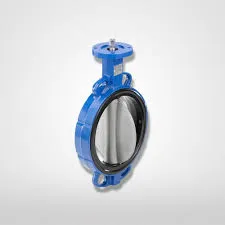10 月 . 31, 2024 02:35 Back to list
electric gate valve actuators
The Role and Functionality of Electric Gate Valve Actuators
Electric gate valve actuators are integral components in various industrial applications, playing a significant role in the efficient management of fluid flow. These actuators combine electric power with mechanical operation to control gate valves, which are widely used in water treatment plants, oil and gas industries, chemical processing, and HVAC systems. The automation offered by electric actuators enhances operational efficiency, safety, and precision.
Gate valves are designed to provide a straight-line flow of fluid with minimal pressure drop. Unlike other types of valves that may throttle flow, gate valves either fully open or fully close the flow path. This functionality is crucial in applications where isolation of fluid flow is required. However, traditional manual operation can be labor-intensive and may result in inaccuracies and delays, especially in large-scale operations. This is where electric gate valve actuators come into play.
Electric actuators work by converting electrical energy into mechanical motion. They typically consist of an electric motor that drives a gear mechanism, which in turn opens or closes the gate of the valve. The use of electric power for actuating valves offers several advantages over manual methods. First, it eliminates the need for physical labor, thus reducing the risk of worker fatigue and injury. Second, electric actuators can be integrated with control systems, allowing for remote operation and monitoring, which is particularly beneficial in hazardous environments.
electric gate valve actuators

One of the significant benefits of electric gate valve actuators is their precision. They can be programmed for specific open and close positions, enhancing the overall control of fluid dynamics within a system. This level of control is critical in applications where the flow rate and pressure must be maintained within strict limits. Moreover, electric actuators can be equipped with feedback devices, providing real-time information about the valve's position, which is essential for automated systems and process control.
Electric gate valve actuators also offer reliability and low maintenance needs. While they may require initial investment, the long-term benefits, including reduced downtime and increased operational efficiency, often outweigh these costs. Additionally, electric actuators can be designed to operate in extreme environments, with features such as weatherproof enclosures and corrosion-resistant materials.
In recent years, advancements in technology have also facilitated the development of smart electric actuators. These updated models incorporate IoT (Internet of Things) capabilities, enabling them to communicate with other devices across a network. This connectivity allows for predictive maintenance, where data analytics can forecast potential failures and schedule maintenance before issues arise. Consequently, industries can minimize unexpected downtime and enhance system reliability.
In conclusion, electric gate valve actuators represent a fusion of efficiency, safety, and technological innovation. Their ability to automate valve operations not only streamlines processes but also contributes to energy conservation and environmental sustainability. As industries continue to evolve, the adoption of electric actuators will likely become increasingly prevalent, paving the way for smarter and more efficient fluid management solutions. Whether in water treatment, oil and gas, or manufacturing, these devices are set to play a crucial role in shaping the future of industrial automation.
Share
-
Understanding the Differences Between Wafer Type Butterfly Valve and Lugged Butterfly ValveNewsOct.25,2024
-
The Efficiency of Wafer Type Butterfly Valve and Lugged Butterfly ValveNewsOct.25,2024
-
The Ultimate Guide to Industrial Swing Check Valve: Performance, Installation, and MaintenanceNewsOct.25,2024
-
Superior Performance with Industrial Swing Check Valve: The Essential Valve for Any SystemNewsOct.25,2024
-
Industrial Swing Check Valve: The Ideal Solution for Flow ControlNewsOct.25,2024
-
You Need to Know About Industrial Swing Check Valve: Functionality, Scope, and PerformanceNewsOct.25,2024